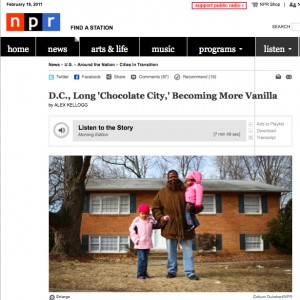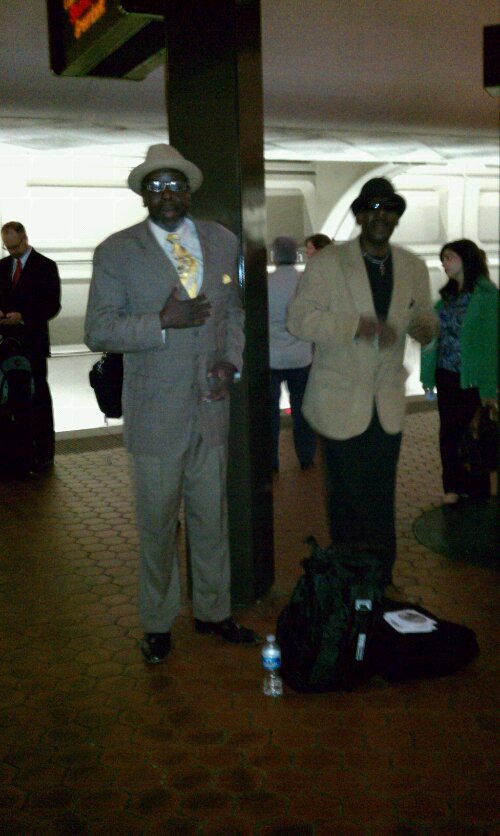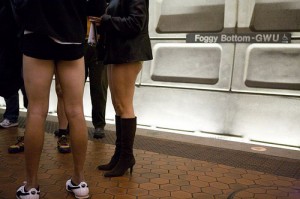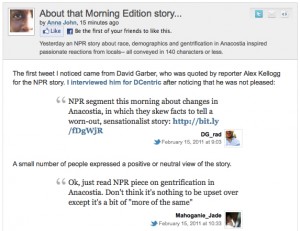
The Morning Edition story about Anacostia which riled some locals.
Yesterday, NPR’s Morning Edition aired a piece about how Washington, D.C. is changing: “D.C., Long ‘Chocolate City,’ Becoming More Vanilla“. The segment was taped in Anacostia, and if social media is an accurate way to gauge local reactions, this highly-anticipated story dismayed and disappointed some listeners who live in Chocolate City.
While the racial makeup of D.C. is changing (everywhere– not just east of the river), some D.C. residents worried that the story showed an incomplete picture of a community which already struggles with how it is stereotyped and viewed. Did journalist Alex Kellogg go to Anacostia with a predetermined narrative in mind, which he padded with formulaic soundbites? A black resident is forced out. A young white gentrifier takes his place. People are robbed and pistol-whipped in an “edgy”, poor, black part of town.
Or is Kellogg guilty of dwelling on a community’s challenges instead of its immense potential? Is it even possible to tell a Ward 8 community’s story in under eight minutes? After speaking with David Garber, one of the people who was interviewed by Kellogg, I wonder if the answer to that last question is…”Maybe not.”
I emailed Garber as soon as I saw his tweets, which denounced the piece. Here’s what I knew about him from reading his blog, “And Now, Anacostia“, before Morning Edition taught me what he actually sounded like; Garber had lived in Anacostia, he was a booster for that community and he ceaselessly tried to counter the negative reactions it inspires. When I type “ceaseless”, I mean it– in 2009, when four men broke into his home during a holiday party and robbed his guests, Garber wrote:
As the night unfolded I was most frustrated that this happened in the presence of my guests, and that they would no doubt think differently about a neighborhood that they had grown comfortable with.
That’s right. Garber wasn’t worried about his safety or that he was a target– he was concerned that people who were already hesitant to visit him in Anacostia had just had their worst assumptions validated. And that’s the biggest complaint I saw yesterday– that Kellogg’s story conveniently confirmed the worst stereotypes about Anacostia. The fact that the story aired on Morning Edition, a respected program which thoughtful people trust for a nuanced take on the news only made it that much more powerful– and painful.
I called Garber yesterday, and spoke with him about Morning Edition, how he was portrayed and what he thinks about gentrification. He had quite a bit to say.
Continue reading →










